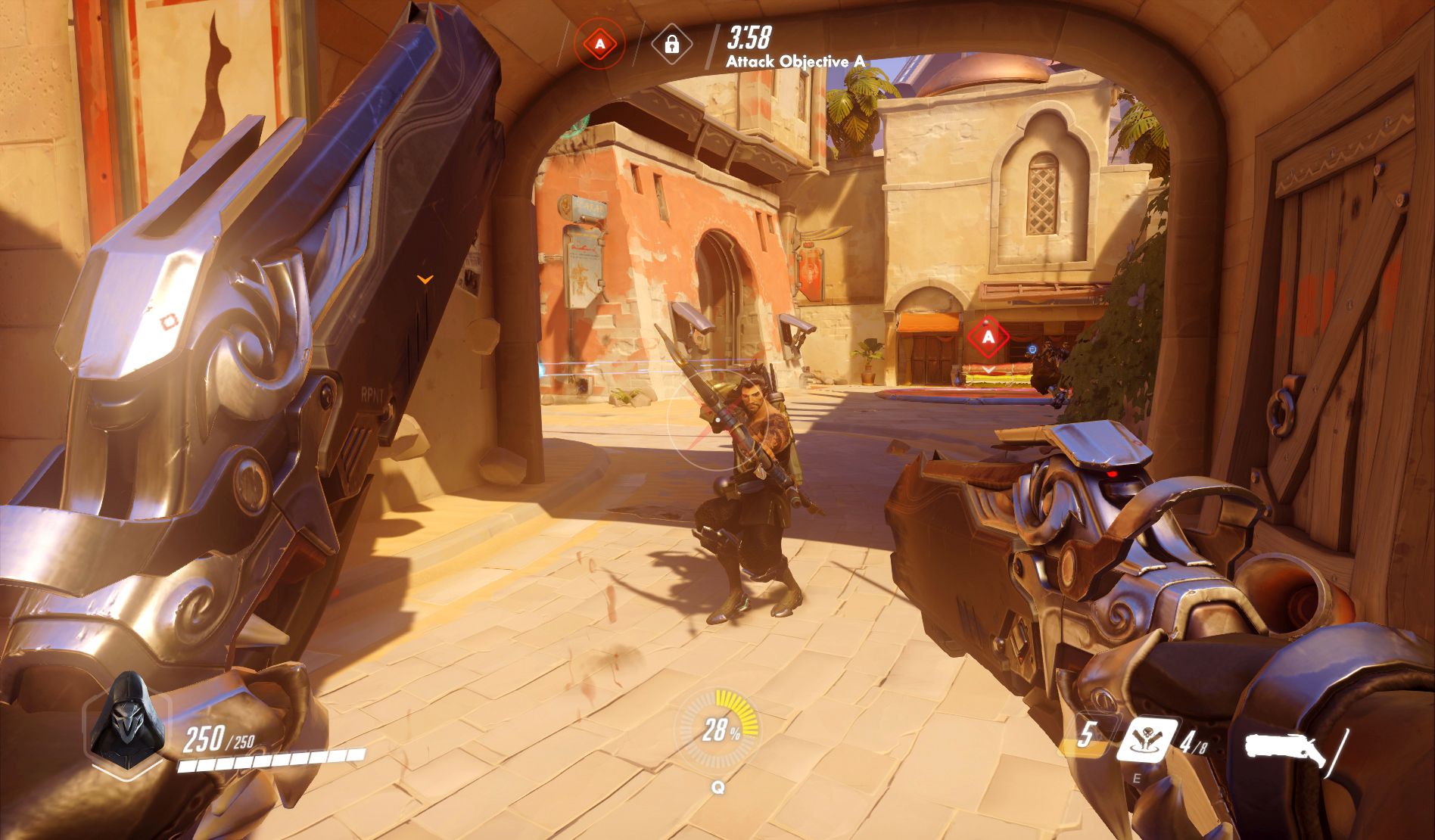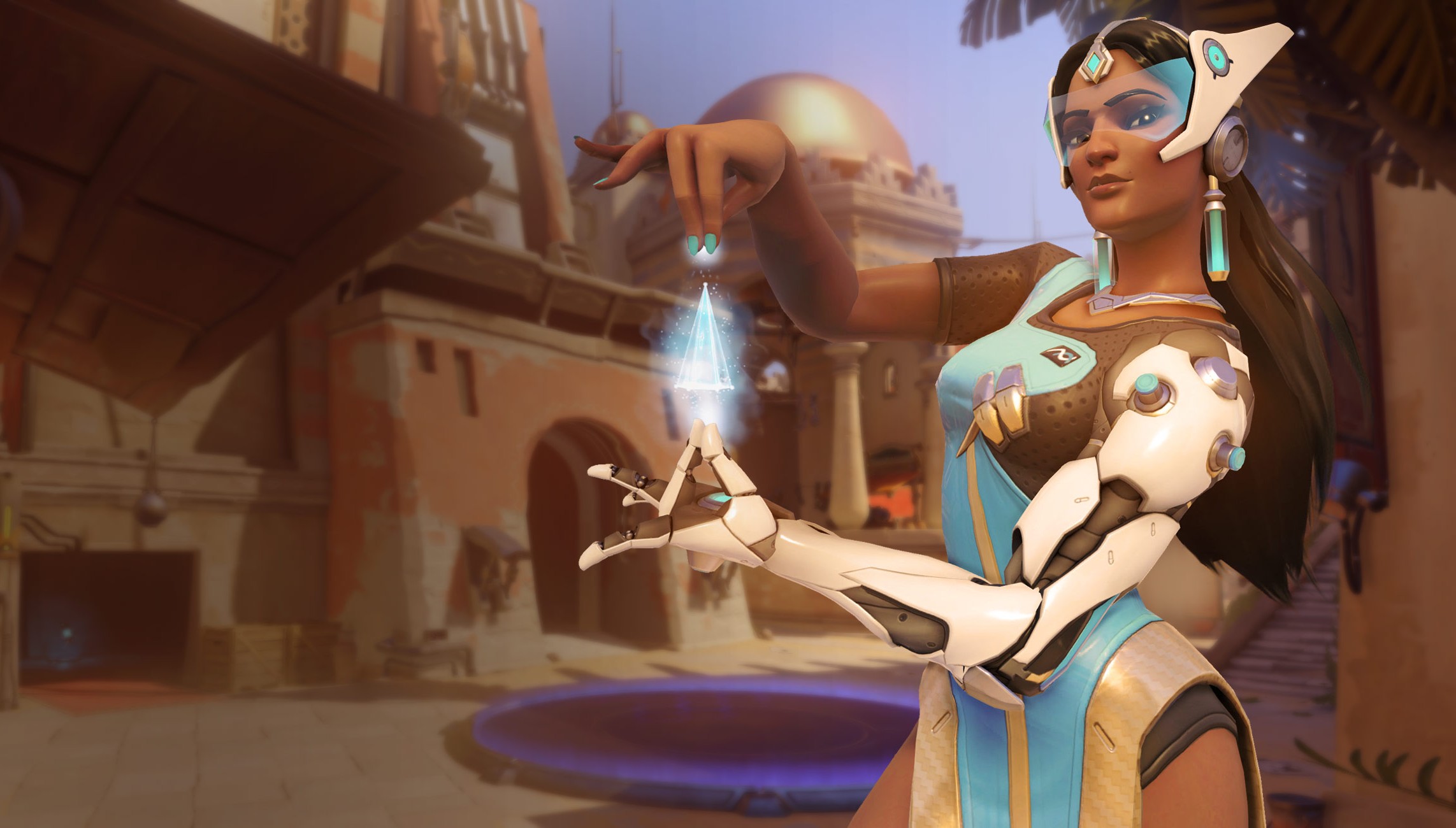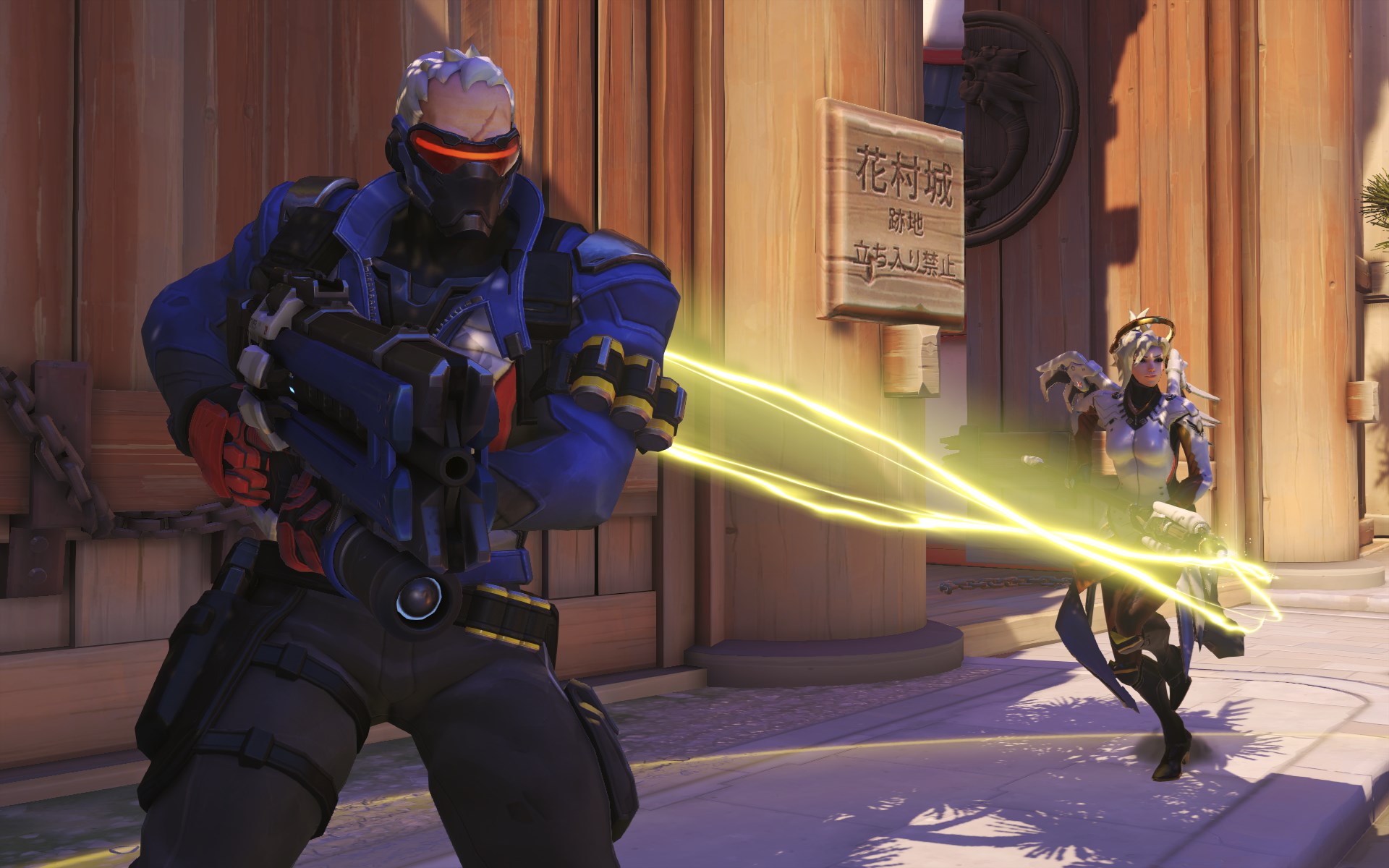
Overwatch has a turret builder and a medic with a heal beam, but it's not the carbon copy of Team Fortress 2 you might think it is. It has a hero with a rocket launcher that can soar through the air, but it's not like Quake. With so many team-based shooters entering the market, it's easy to fall into the comfortable trap of playing the comparison game. Instead of feeling specifically like one game, many of Overwatch’s heroes feel like homages to other styles of shooter—with game director Jeff Kaplan even comparing McCree’s weighty revolver to Gordon Freeman’s Colt Python—but when they all come together, the whole feels very different than the sum of its parts.
In July I wrote about how my excitement for Overwatch’s world was tempered by its characters' rather bland looking abilities. At the time I hadn’t played Overwatch, so I was voicing my concerns based only on what I had seen in videos and teasers. Unfortunately, the rampant popularity of MOBAs had trained me to judge a character first and foremost by their abilities, which meant I completely missed what really makes Overwatch’s heroes special: their guns. Now that I’ve played Overwatch, I don’t think I was off base in saying many of the characters have bland ability kits, but their unique weapons give each of them a compelling personality and playstyle.

I tried to play as many different heroes as I could in my three-hour session at Blizzard HQ, and was shocked to find that Symmetra ended up being one of my favorites. Back in May, I was completely underwhelmed by what the support characters (my preferred role) had to offer. Symmetra’s abilities—a tiny point-and-click shield, small placeable turrets, and a teleporter—aren’t going to win any awards for innovation, but her role within my team became abundantly clear only after I had spent a couple of rounds playing as her, and especially after I saw the power of her gun.
Overwatch’s maps have lots of side paths and ways to sneak around your enemies, and Symmetra is all about zoning. Her alternate fire is an incredibly powerful charged attack that slowly moves in a straight line. It hits for massive damage and moves so slowly that it's simple to dodge, but forcing enemies to dodge ended up having surprising utility as an area-denial technique. I could drop a few small turrets to defend a side path while I zoned people off of the main road with my alternate fire. If anyone managed to break through our lines and get close, my gun’s main fire—a short ranged but powerful damage beam that locks onto an enemy—hurt enough to force them away.
Another surprising standout was Torbjörn, the dwarfish turret builder. I expected a pretty standard “place a turret, upgrade and defend it” hero but, once again, his gun surprised and excited me. It isn’t just the store-brand shotgun that TF2’s Engineer is left to use in uncomfortably close situations. Instead, I could actually be an important offensive player with his Rivet Gun, dealing good damage at mid-to-long range with a bursty alternate fire that's downright lethal in close quarters. He’s another case of simple abilities resulting in a compelling playstyle thanks to his primary weapon.

The characters got even more complex when I started really working with my team to time our Ultimates and ability usage. We’d be feeding bodies into a well-fortified choke point until we all took a moment, slowed down, and pushed through together. Overwatch’s focus on teamplay over the glory of an individual will help set it apart from competition like LawBreakers, and the announcement that it will have built-in voice chat—slightly unusual for a Blizzard game—should raise the quality of the average solo queue game. Being able to swap characters mid-match is also incredibly important to quickly adapting to your opponent’s strategies and organizing combos with your team. By the end of my play session, we were already starting to get a picture of whose Ultimates worked best together.
Kaplan said that he thinks each hero is defined by their Ultimate ability, but I think it’s all about their gun. It was consistently the thing that made a hero’s ability kit finally make sense, and dictates the pace that hero is played at. Tracer’s SMGs and McCree’s Revolver fire quickly and reload often, while Reinhardt’s Hammer and Zarya’s Particle Cannon hit hard in slow-paced bursts. With ability-based heroes it’s easy to get caught up in the MOBA comparison, and with a few familiar playstyles it’s easy to point out Overwatch’s similarities to other shooters—but its characters are defined by their firearms, and the feel of the game is defined by how those characters interact with each other.
The biggest gaming news, reviews and hardware deals
Keep up to date with the most important stories and the best deals, as picked by the PC Gamer team.


